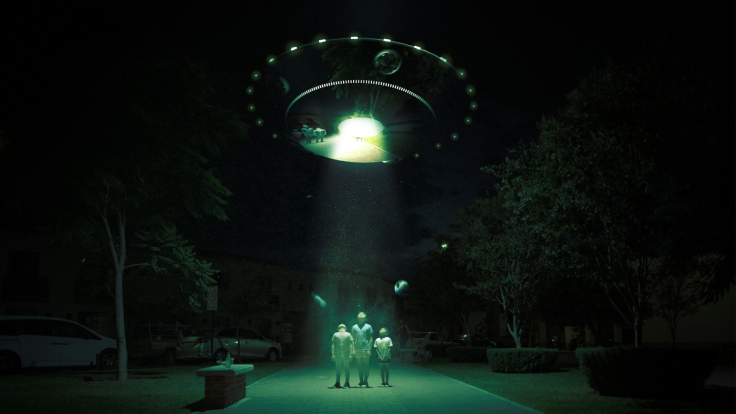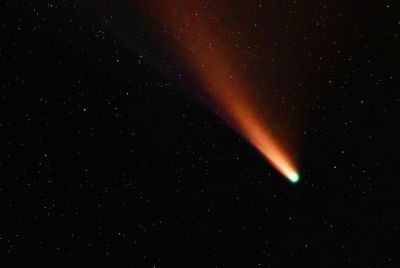Is UFO Disclosure Dead? Jeremy Corbell and George Knapp Expose the Truth Behind the Government's Silence
Jeremy Corbell and George Knapp question if UFO disclosure is dead.

In a time when public fascination with UFOs is at an all-time high, investigative duo Jeremy Corbell and George Knapp have reignited debate over whether government "disclosure" has been quietly buried or merely evolving behind the scenes.
The Great Silence After the Storm
In their latest WEAPONIZED episode, Is UFO Disclosure Dead? (YouTube), Corbell and Knapp confront the uncomfortable truth: after years of unprecedented leaks, congressional hearings, and whistleblower testimonies, official transparency about unidentified aerial phenomena (UAPs) appears to have stalled.
Corbell, known for releasing verified military UFO footage, laments how the initial surge of public interest has been met with bureaucratic indifference.
'We went from revelation to regression,' he remarks, describing how public agencies once pressured to act have now fallen silent. Knapp, his long-time co-investigator, adds that secrecy might be a habit and policy.
From Panic to Propaganda
The episode doesn't exist in a vacuum. It comes amid a wave of online hysteria over the interstellar object 3I/ATLAS, wrongly labelled by some as a 'spacecraft heading for Earth.' A widely shared X post by user @RedPandaKoala addressed the claims directly, calling them 'manipulated narratives seeded by bad actors.'
Red Panda Koala, who recently joined Knapp in dissecting these claims, insists that such panic often originates from intelligence-linked circles trying to shape the public conversation.
'I was warned a lie was coming,' he says in the clip. 'People were trying to convince me to say a spacecraft was inbound, but I said no. That storyline didn't come from nowhere.'
Corbell and Knapp see this as part of a wider trend, a deliberate effort to weaponise uncertainty. 'The UFO subject has always been fertile ground for manipulation, Knapp explains. 'When fear sells, truth becomes a casualty.'
The Intelligence Connection
One of the more striking revelations from WEAPONIZED EP #94 is that both journalists have received informal briefings from intelligence insiders, individuals who alternately hint at deep secrets and then retreat into plausible deniability.
Corbell notes that these figures often 'dangle information like bait,' creating enough intrigue to keep the UFO mythos alive without verifying anything verifiable.
Knapp compares it to psychological warfare: 'It's not about informing the public; it's about shaping perception.'
This view aligns with what @RedPandaKoala described, years of subtle nudges from 'intelligence contacts' trying to push a specific 'threat narrative.' The idea, he warns, is to keep the UFO conversation alive not as a matter of discovery, but as a matter of control.
The 3I/ATLAS Misfire
The 3I/ATLAS controversy is a case study of how such manipulation spreads. The supposed "interstellar spacecraft" has been debunked as a comet with "unusual material properties," yet speculation persists.
Knapp highlights how misquotes and doctored clips, including one falsely attributing an apocalyptic comment to astrophysicist Avi Loeb, fuel fear for clicks.
'It's Hale–Bopp all over again,' Knapp says, invoking the 1990s comet hysteria that ended in the Heaven's Gate tragedy.
Both journalists stress the importance of distinguishing evidence from engagement. 'Social media rewards alarm, not accuracy," Corbell warns. "That's the new disinformation engine.'
Jeremy Corbell says he wasn't talking about 3I/Atlas whe he spoke of a big lie about an approaching alien craft pic.twitter.com/cniwDxEOVM
— Red Panda Koala (@RedPandaKoala) October 23, 2025
Has Disclosure Died or Gone Dark?
So, is UFO disclosure dead? Corbell and Knapp suggest the opposite: it may have gone underground. With whistleblowers facing threats and congressional investigations losing steam, what was once an open movement has become opaque again.
'The truth didn't vanish,' Corbell says. It's just back behind closed doors.'
Knapp agrees, but adds a note of hope. 'You can't unring the bell,' he says. 'People have seen too much, and too many credible voices have spoken out. The silence is temporary.'
For now, WEAPONIZED serves as a rare platform where investigators can still ask the questions that institutions avoid. The question remains whether the public and the press will keep listening long enough to demand real answers.
© Copyright IBTimes 2025. All rights reserved.





















